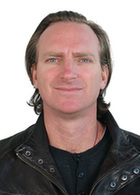US Secretary of State John Kerry will travel to Israel on Friday to discuss a proposed deal between world powers and Iran on the Islamic Republic's nuclear program, Israeli Prime Minister Benjamin Netanyahu said on Sunday.
Netanyahu has condemned a proposal, endorsed by Washington, to reduce sanctions on Iran if Teheran suspends parts of its nuclear work.
Netanyahu said he would discuss the issue with French President Francois Hollande, who arrives in Israel later on Sunday, and with Russian President Vladimir Putin in Moscow on Wednesday.
"We will discuss (Iran) at the head of the many issues on the agenda," Netanyahu said of Hollande's visit in public remarks at the start of a weekly cabinet meeting. "I will do the same with President Putin in my visit to Moscow on Wednesday, and I will do the same with John Kerry, who is coming here on Friday."
Countries across the Middle East will want to acquire nuclear weapons if Iran is allowed to develop an atomic bomb, Israel's president told a French newspaper ahead of a meeting on Sunday with his French counterpart.
Shimon Peres said he appreciated France's firm stance in negotiations earlier this month on Iran's nuclear program, adding that there should be "no let-up" in the international pressure onTeheran.
"We are convinced that if Iran manufactures its bomb, all the countries of the Middle East will want to follow suit," the Israeli president told French weekly Le Journal du Dimanche.
Global powers and Iran are close to a preliminary deal to rein in Teheran's nuclear program and should not pass up a "very good chance" to clinch it, Russian Foreign Minister Sergei Lavrov said in remarks broadcast on Saturday.
His upbeat comments in a television interview came a day after a senior US official said it was possible a deal could be reached when negotiators meet in Geneva from Nov 20.
Six nations negotiating with Iran hope the talks can produce an agreement that would be the first step toward a comprehensive deal to end a decade-long standoff with Teheran and provide assurances it will not build nuclear weapons.
"Our common impression is that there is a very good chance that must not be passed up, "Lavrov said of a recent discussion with European Union foreign policy chief Catherine Ashton, when asked whether the Geneva talks could be successful.
"The steps that must be taken to defuse the situation and create conditions for a final resolution of the Iranian nuclear problem are clear to both the six nations and Iran," he said in the interview with Moscow-based TV Tsentr.
"It is a matter of putting this on paper correctly, accurately and in a mutually respectful way."
(中國日報網(wǎng)英語點津 Helen 編輯)

About the broadcaster:

Lance Crayon is a videographer and editor with China Daily. Since living in Beijing he has worked for China Radio International (CRI) and Global Times. Before moving to China he worked in the film industry in Los Angeles as a talent agent and producer. He has a B.A. in English from the University of Texas at Arlington.
